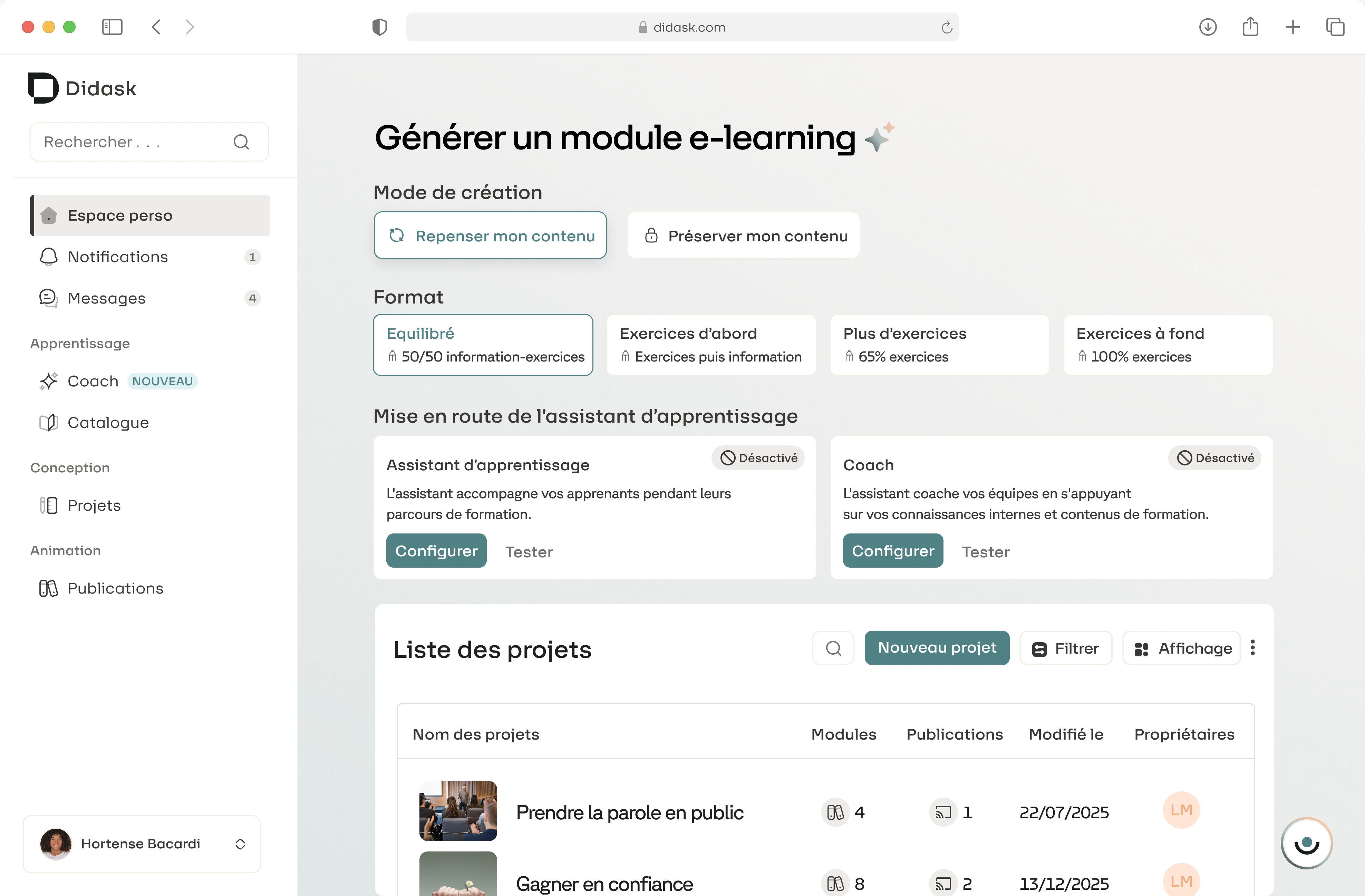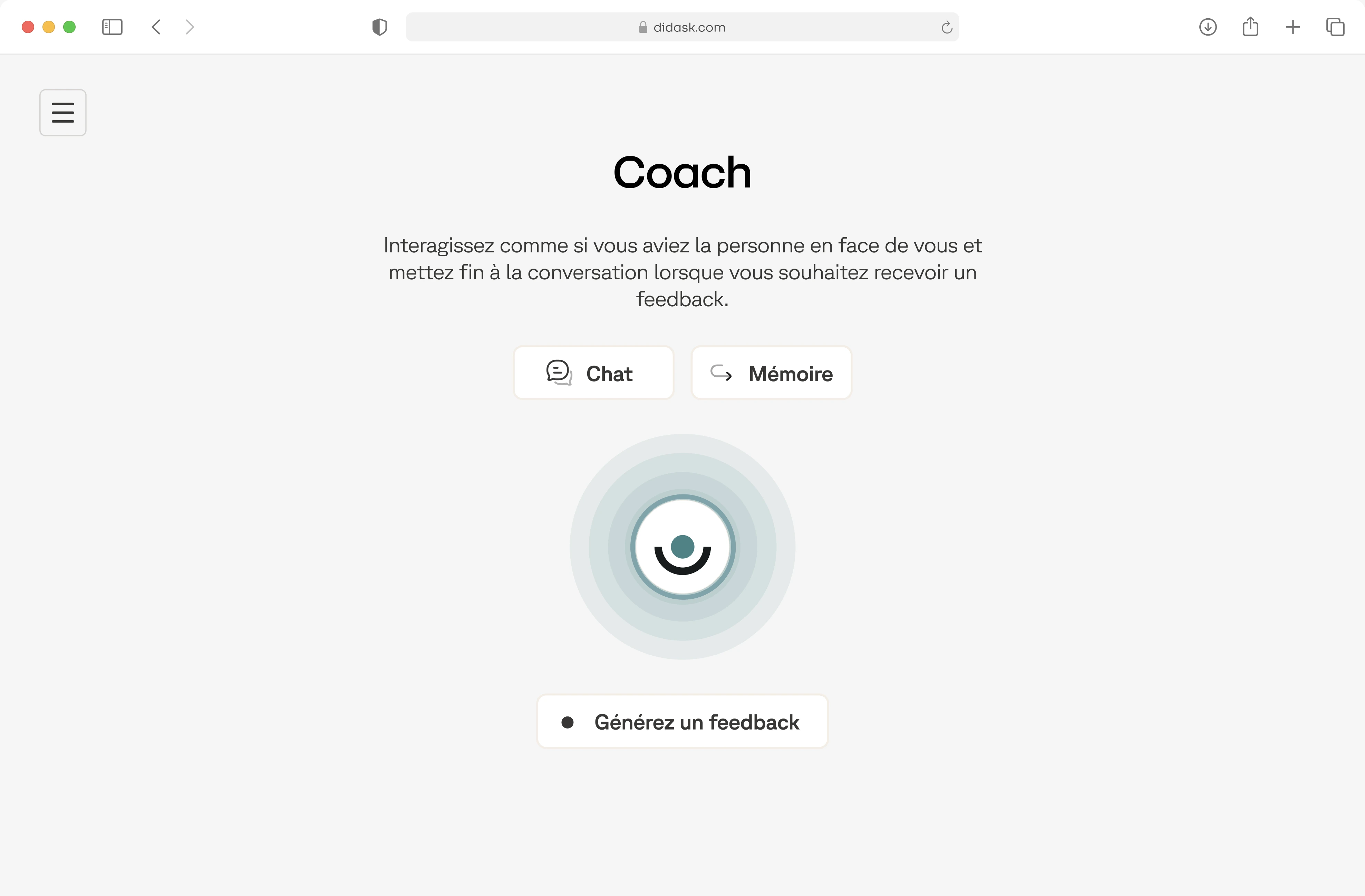The keys to avoid the illusion of learner control and train the learner well
Who has not already tried to memorize an important course or file by reading it several times in a row until “it fits”? When we learn something, we feel that we have mastered it as soon as we “feel” that we have it in our memory. So we stop, thinking we're done. But when a few days later, the opportunity to mobilize this knowledge arises, horror: we cannot remember it [1]. These deceptive insights are very common when learning. These are called illusions of mastery, this impression of “thinking I know” when this is not the case.
But if they are so common, is it possible to combat these Illusions of mastery ? And how can we ensure effective learning ?
How do you know that you don't know? Test yourself!
In recent years, the work carried out on the subject in cognitive science have provided solid solid results on the learning methods to be preferred in order to avoid The illusion of mastery and fully understand this cognitive issue [2]. So-called passive learning strategies, such as repeated proofreading without interruption over time, highlighting and recopying, should be avoided. : because they do not provide objective indicators of our mastery of information, they reinforce our illusion of control and learning is of lower quality.
On the contrary, self-assessment is one of the simple learning methods to put in place to avoid the pitfalls of the illusion of control.. In addition to making the learner an actor in their learning, they allow them to know precisely through self-assessment. Whether the latter is in the form of multiple choice questions, empty texts, spontaneous reminders or even scenarios, the objective remains the same: to point out our shortcomings as well as our achievements [3].
However, while research has shown that self-assessment is more effective than passive proofreading [4], manylearners continue to use the latter and believe it to be very effective. These assumptions come in part from the fear of error: proofreading reassures us because it prevents us from “making mistakes”. However, mistakes made while testing themselves are wrongly seen as failures, when in reality they are the best allies of learning! In fact, eBy deceiving ourselves and then understanding why, self-assessment guides us on how to avoid this or that error. that would not have been detected otherwise [5].
Finally, self-assessment provides relevant information on our level of mastery of knowledge, which contributes to better learning. It is in fact proven that for an equal length of apprenticeship, Testing yourself allows better memorization : you reduce your rate of forgetting over time, while maintaining the same level of control [6]. So don't be afraid to make mistakes anymore, you are learning. For eLearning trainers, it is therefore essential to focus on solutions that allow them to design practical cases for their learners to test themselves, all in a caring environment where mistakes are welcomed.

How to ensure optimal control? Test yourself regularly and not just once!
To increase its positive effects on learning, self-assessment should be used throughout learning to continuously show us our real level of knowledge [7]. In fact, our progress are not linear, and the content you knew so well at one point in time could already be erased from your memory without your knowledge. Testing yourself regularly helps to prevent oversights over time and to consolidate our achievements! Is it called the spacing effect, which consists of spacing out revision sessions [8] at any time during our learning and revisions [9]. Les adaptive learning solutions Like that of Didask are a good ally in achieving this because they automatically space out sessions.
It remains to be seen which type of self-assessment is the most effective! We need to find the one that gives us the most relevant feedback on our performance, and that depends, of course, on the type of knowledge we want to master. In general, the more effort and effort the assessment mobilizes our memory functions, the more reliable it will give us insight into our abilities.
Reducing the gap between our real level and our perception of it as much as possible is the first guarantee of successful learning!
REFERENCES:
[1] Bjork, R.A., Dunlosky, J., & Kornell, N. (2013). Self-regulated learning: Beliefs, techniques, and illusions. Annual Review of Psychology, 64, 417-444.
[2] Dunlosky, J., Rawson, K.A., K.A., Marsh, E.J., Marsh, E.J., Nathan, M.J., & Willingham, D.T. (2013). Improving Students' Learning With Effective Learning Techniques: Promising Directions From Cognitive and Educational Psychology. Psychological Science in the Public Interest: A Journal of the American Psychological Society, 14 (1), 4—58.
[3] Brown, P.C., Roediger, H.L., & McDaniel, M.A. (2014). Make It Stick. Harvard University Press. (chapter 5: Avoid illusions of knowing).
[4] McCabe JA. 2011. Metacognitive awareness of learning strategies in undergraduates. Mrs. Cogn. 39:462 —76
[5] Butler, A.C. and Roediger, H.L., III (2008) Feedback enhances the positive effects and reduces the negative effects of multiple-choice testing. Mrs. Cogn. 36, 604—616
[6] McDaniel, M.A., Wildman, K.M., & Anderson, J.L. (2012). Using Quizzes to Enhance Summative-Assessment Performance in a Web-based Class: An Experimental Study. Journal of Applied Research in Memory and Cognition, 1, 18—26.
[7] Gholami, V., Morady Moghaddam, M. (2013).The Effect of Weekly Quizzes on Students' Final Achievement Score. Modern Education and Computer Science, (1), 36-41.
[8] Roediger III, H.L., & Karpicke, J.D. (2011). Intricacies of Spaced Retrieval: A Resolution. In Successful Remembering and Successful Forgetting: A Festschrift in Honor of Robert A. Bjork (pp. 23—47). New York, NY, US: Psychology Press.
[9] Karpicke, J.D. (2009). Metacognitive control and strategy selection: deciding to practice retrieval during learning. Journal of Experimental Psychology: General, 138 (4), 469.










.png)